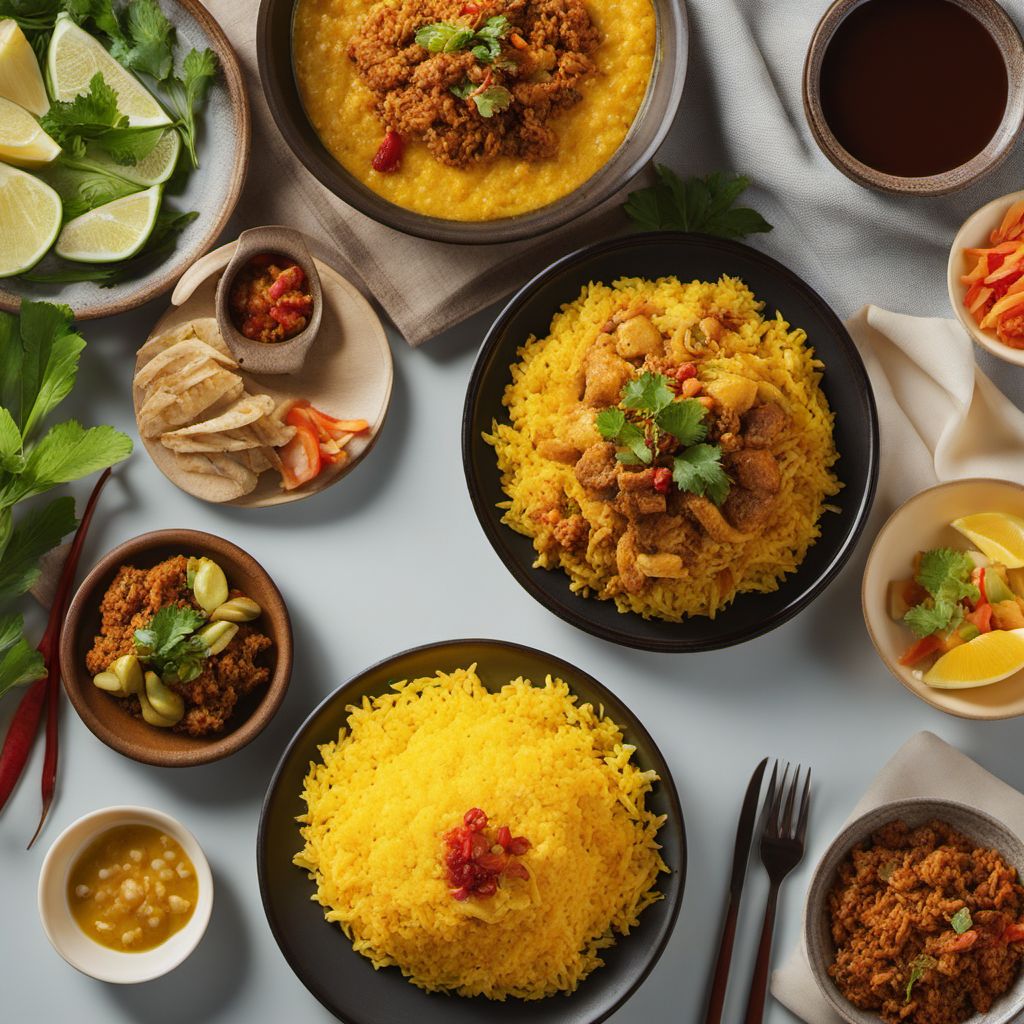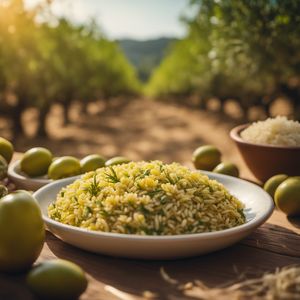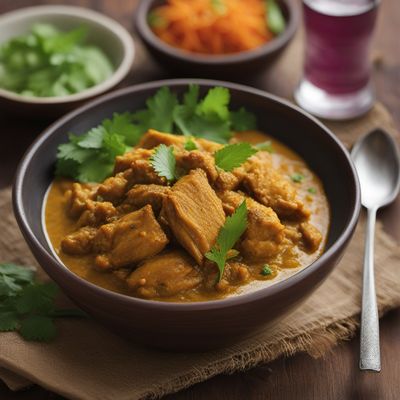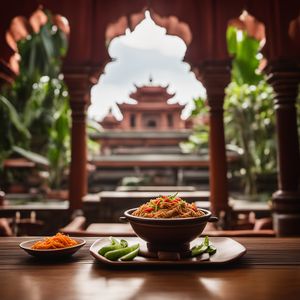
Dish
Nasi kuning
Nasi kuning is made by cooking rice with turmeric and coconut milk, which gives it a bright yellow color and a subtle coconut flavor. The dish is typically served with a variety of side dishes, including fried chicken, tempeh, and sambal. The rice is fluffy and fragrant, with a subtle sweetness that is complemented by the spices. The dish is then garnished with fresh herbs and served hot.
Origins and history
Nasi kuning is a traditional dish from Java, Indonesia. It is believed to have originated in the 17th century, when the Dutch introduced turmeric to the region. The dish has since become a staple food in Indonesia and is enjoyed by people of all ages and backgrounds.
Dietary considerations
Nasi kuning is a gluten-free dish that is suitable for vegetarians and vegans. It is high in carbohydrates and calories, making it a filling and satisfying meal.
Variations
There are many variations of Nasi kuning, with some recipes calling for the addition of meat or seafood. Some recipes also call for the use of different spices, such as coriander or cumin. The dish can also be made with brown rice instead of white rice for a healthier option.
Presentation and garnishing
Nasi kuning is typically served on a large platter with the rice in the center and the side dishes arranged around it. The dish is garnished with fresh herbs and can be served with a wedge of lime for added flavor.
Tips & Tricks
To make the dish even more flavorful, try adding some toasted coconut flakes to the rice before serving. This will add a crunchy texture and a nutty flavor to the dish.
Side-dishes
Fried chicken, tempeh, and sambal are the most common side dishes served with Nasi kuning. The fried chicken adds a savory flavor to the dish, while the tempeh provides a protein-rich option for vegetarians. The sambal is a spicy condiment that is made with chili peppers and other spices.
Drink pairings
Nasi kuning pairs well with a variety of drinks, including tea, coffee, and fruit juices. A cold glass of iced tea is a popular choice among locals, while a cup of hot coffee can help to balance out the richness of the coconut milk.
Delicious Nasi kuning recipes
More dishes from this category... Browse all »

Aji nigiri sushi
Japanese cuisine

Akami nigiri sushi
Japanese cuisine

Anago nigiri sushi
Japanese cuisine

Arroz a la plancha
Spanish cuisine

Arroz a la tumbada
Mexican cuisine

Arroz al forn
Spanish cuisine

Arroz al jerez
Spanish cuisine

Arroz al olivar
Spanish cuisine


